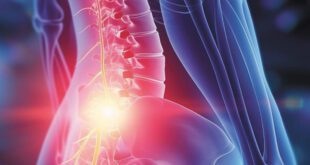By Anne-Marie Chalmers, MD
 Countless blogs detail how exercising, eating well, and sleeping better are crucial for healthy aging. But there’s one aspect to good health that people rarely mention: pooping.
Countless blogs detail how exercising, eating well, and sleeping better are crucial for healthy aging. But there’s one aspect to good health that people rarely mention: pooping.
Yes, pooping.
Maybe as a physician, I should be medically correct and write “defecating” instead. But whatever the term, one thing is certain: A regular bowel movement is essential for feeling good.
Chronic Constipation Could Be a Symptom of Intestinal Dysbiosis
A proper poop is dependent on a healthy gut. And if you regularly struggle with constipation (or diarrhea), it could be a sign that you gut is not functioning optimally.
In medicine, we use the term intestinal dysbiosis, which means that the populations of the different gut bacteria that colonize the intestines have become imbalanced. Today, we know that these gut bacteria dictate a huge range of not just bowel-related disorders — like Irritable Bowel Syndrome (IBS) and chronic constipation — but also our weight and immune response to chronic diseases.
The composition of our gut flora depends on a variety of factors, including genetics, age, previous antibiotic use, and environment. Diet, however, plays an especially big role. Let’s focus on two stool-facilitating nutrients that promote good intestinal health: fiber and fish oil.
The Digestive Benefits of Fibers
Almost every constipation-related article talks about the importance of eating enough fiber — and with good reason. Fiber has a profound impact on our digestive system.
First and foremost, fiber promotes good microbial health. Gut bacteria feed on fiber through fermentation, breaking them down in the digestive system. During this fermentation process, the bacteria create short-chained fatty acids (SCFAs) that help support the integrity of the cells in the stomach. SCFAs also influence our metabolism, appetite, and immune response.
How Soluble and Insoluble Fiber Function
The term “fiber” encompasses a number of carbohydrates, and different types of fiber impact our digestive system in unique ways. For instance, beta-glucan soluble fibers (found in oats and barley) are easily fermented by the gut bacteria. Beta-glucan fiber is also known to bind together with cholesterol, thereby helping to remove it from the body.
Insoluble fibers are generally not fermented by the gut bacteria. However, insoluble fibers are still important since they help push food through the intestinal tract. Certain types of insoluble fiber also bind together with water to help soften the stool, providing a natural laxative effect.
Why Fiber-Rich Foods Are Important
Because different types of fibers feed different bacteria species and impact our digestive system in unique ways, eating a variety is best for promoting microbial health.
Unfortunately, most of us here in the United States do not get enough of these important nutrients. While studies show massive improvements in microbial diversity when people consume more than 30 grams of fiber daily, most Americans only get between 12-18 grams on average.
The Benefits of Omega-3 Fish Oil for Constipation
Since oils act as natural lubricants, most varieties will help get the “ball rolling” in the restroom. For better bowel movements, however, omega-3 fish oils have clear advantages to other types.
Intestinal Alkaline Phosphatase
Fish oil is known to increase the production of intestinal alkaline phosphatase (IAP). IAP plays a crucial role in maintaining gut homeostasis and reducing inflammation in the intestines. Researchers have also found a link between reduced IAP concentrations and conditions like IBS.
Antimicrobial Properties
Full-spectrum fish oil has antimicrobial properties that help keep certain endotoxin-producing bacteria species from wreaking havoc in the gut. Since endotoxins cause inflammation, blocking their build-up helps in turn to reduce inflammation in the intestines.
Healthier Gut Flora
Fish oil also promotes a better composition of gut bacteria. In clinical studies of individuals with IBS, researchers found that omega-3 supplementation increased the population of certain healthy bacterial species. What’s more, omega-3s also decreased the levels of other harmful bacterial groups, resulting in a healthier microbiome.
About Anne-Marie Chalmers, MD
Born and raised in the United States, Dr. Chalmers graduated from Brown University and completed her medical training at the University of Oslo in Norway. Dr. Chalmers practiced emergency, family, and preventive medicine in Norway for many years. Today, she serves as president of Omega3 Innovations.
OMEGA 3 INNOVATIONS
CALL US AT 941-485-4400
WWW.OMEGA3INNOVATIONS.COM
 Central Florida Health and Wellness Magazine Health and Wellness Articles of the Villages
Central Florida Health and Wellness Magazine Health and Wellness Articles of the Villages



